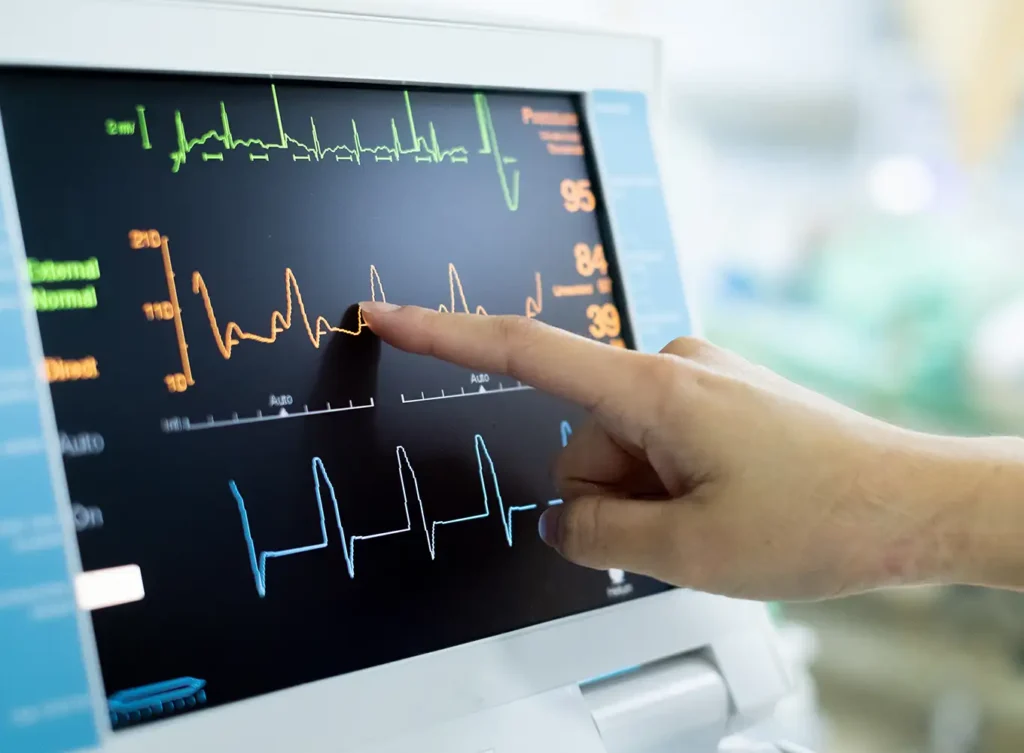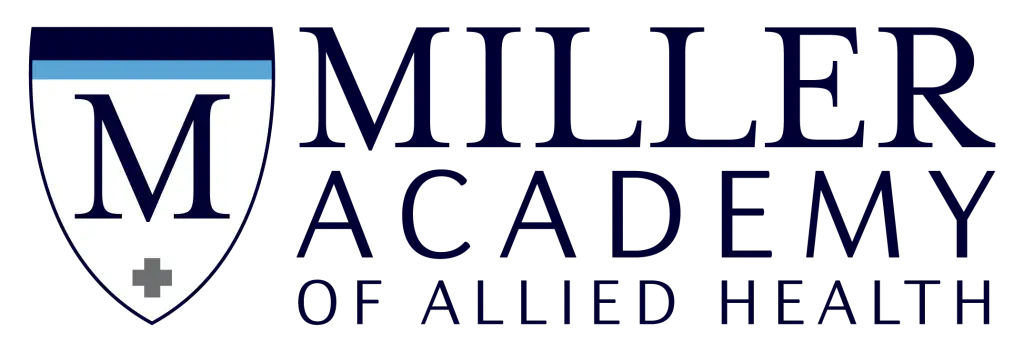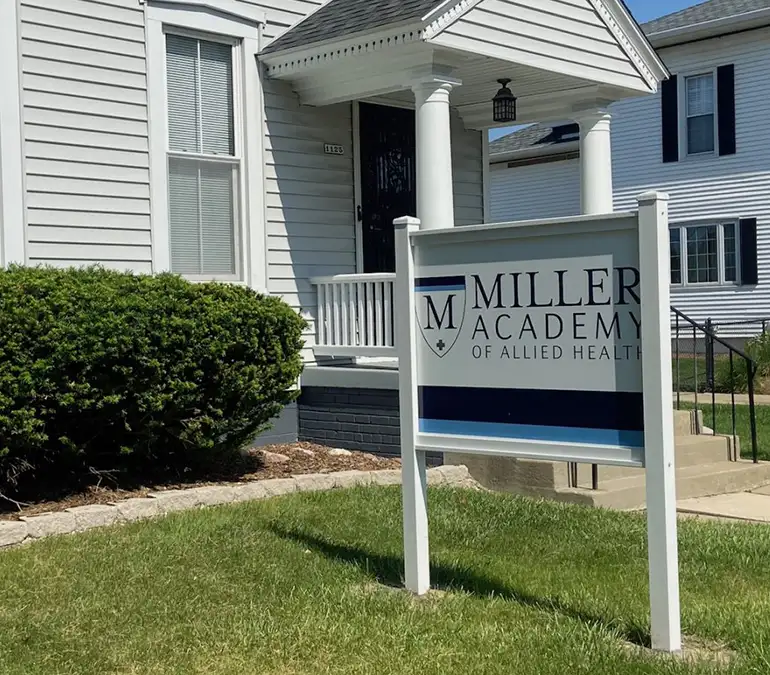Programs

BNATP (CNA)
The Basic Nurse Assistant Training Program (CIP Code 51.3902) consists of 120 clock hours of coordinated theory, lab, and clinical learning activities. The program covers concepts on basic nursing skills. It is designed to prepare students to function under the supervision of the Registered Nurse in various healthcare settings. Successful completion of the program will lead to eligibility to sit for the competency exam administered by Southern Illinois University of Carbondale (SIUC). Upon successful passing of the state competency exam, the student’s name will be added in the Nurse Aide Registry which means that a student can work as a Certified Nursing Assistant (CNA) in healthcare facilities.
Specific Admission Requirements:
- Enrollment Agreement.
- The prospective student must be at least 16 years of age.
- A Physical examination, which includes a TB test within the last 12 months.
- Criminal Background Check to be initiated by the school.
- Drug Screen to be initiated by the school.
- Government-issued ID.
- Copy of health insurance coverage if available.
- Valid social security number
Due to the high demand for qualified allied health workers/health care providers, students who successfully complete the program/course of their choice, perform successfully in their clinical requirements, and pass their licensing exams typically find immediate employment by applying directly to any health care facility. The students can also check on the school’s bulletin board for job opportunities.
Successful completion of the program will lead to eligibility to sit for the competency exam administered by Southern Illinois University of Carbondale (SIUC). Upon successful passing of the state competency exam, the student’s name will be added in the Nurse Aide Registry which means that a student can work as a Certified Nursing Assistant (CNA) in healthcare facilities.
- Prepare students for success in a healthcare career path leading to post-secondary programs that license healthcare professionals.
- Uphold the honor and high principles of the profession and accept its disciplines.
- Develop attitudes consistent with those expected of an individual working in the healthcare industry and society in general.
- Demonstrate the knowledge, skills, and professionalism required by employers and patients.
- Identify common clinical procedures performed in the medical office.
- Demonstrate knowledge of the systematic examination of patients.
- Apply administrative principles in the medical office setting.
- Demonstrate knowledge of EMR, office accounting, and medical law/ethics to work in an office.
Apply for and pass the Illinois State Certified Nursing Assistant exam.
(5.5 hours/session) = 80 hours (plus clinical = 40 hours training):
- Session 1 – The Nursing Assistant in Long-Term Care
- Ethical and Legal Issues
- Session 2 – Communication Skills
- Communication Challenges
- Session 3 – Diversity and Human Needs and Development
- Infection Prevention and Control
- Session 4 – Safety and Body Mechanics
- Emergency Care, First Aid, and Disasters
- Admission, Transfer, Discharge, and Physical Exams
- Session 5 – Bedmaking and Unit Care
- Positioning, Moving, and Lifting
- Personal Care
- Vital Signs
- Nutrition and Fluid Balance
- Session 6 – The Gastrointestinal System
- The Urinary System
- The Reproductive System
- The Integumentary System
- The Circulatory or Cardiovascular System
- Session 7 – The Respiratory System
- The Musculoskeletal System
- The Nervous System
- The Endocrine System
- The Immune and Lymphatic Systems and Cancer
- Session 8 – Rehabilitation and Restorative Care
- Subacute Care
- End-of-Life Care
- Your New Position Session
- Session 9 – SUMMARY/FINAL REVIEW/EXAM
- Nursing Assisting: A foundation in Caregiving, Diana L. Dugan, RN Fifth Addition
- Workbook – Nursing Assisting: A Foundation in Caregiving, Fifth Addition
- Hartman Nursing Assistant Skills Video Series (32)
Application Fee: $100
Misc. Fees: $743
Includes: Id Badge, Uniform, Book, Workbook, Lab Fee, BP Cuff & Stethoscope, and Gait Belt, Background Check, AHA CPR, State Exam, Drug Screen
Tuition Fee: $1757
TOTAL: $2500
*Prices subject to change
Phlebotomy Technician
This 120-clock hour program of study is designed to provide you with the knowledge and skills that are required for you to become a Phlebotomy Technician. The Phlebotomy Technician program educates students to collect, process and properly transport laboratory specimens, correctly lab specimens, identify pre-analytical errors, and clinical procedures under the supervision of a Physician or Nurse Practitioner. Phlebotomy Technicians typically work in conjunction with clinical laboratory personnel and other healthcare providers in clinics or other healthcare facilities. They also may work within the hospital, private physician offices, etc. Through classroom work and skills lab training, students learn to collect blood specimens by venipuncture, finger sticks, heel sticks, perform vision and hearing screening, etc. Students do not need to leave the school or attend any other location for this portion of the course. The end of the course includes clinical practicum which will occur in the lab during normal class hours. Upon successful completion, students are prepared to sit for the NHA National Certification Exam. This course is 120 hours of instruction which includes 6 modules of learning (PH 100-PH 105).
Specific Admission Requirements:
- Enrollment Agreement
- Background Check/Misconduct
- Registry Check
- Drug Screen
- Government-issued ID
- Social Security Card
- PPD or Negative Chest X-Ray
- GED/High School Diploma
Phlebotomists are employed throughout the health care system – hospitals, neighborhood health centers, medical group practices, HMO’s public health facilities, Veterans hospitals and blood banks. The field of phlebotomy has greatly expanded in the past several years and the role of this integral member of the health care team has recently been brought into much sharper focus.
The threat of AIDS, hepatitis, and risks to all segments of society from other infectious diseases has dramatically emphasized the need for quickly expanding training programs, while maintaining the highest possible standards of instruction and continuing education for these health care professionals.
Patient safety and quality assurance, which adhere to the most stringent professional standards are essential at every echelon of the health care process. Society’s continuing good health may very well depend on it.
National certification to practice as a phlebotomist is not required, however, successful graduates are encouraged to obtain a national certification. Benefits to obtaining a national certification may include: more job opportunities, an increased pay scale, job security, and increased subject matter expertise.
- Prepare students for success in a healthcare career path leading to post-secondary programs that license healthcare professionals.
- Uphold the honor and high principles of the profession and accept its disciplines.
- Develop attitudes consistent with those expected of an individual working in the healthcare industry and society in general.
- Demonstrate the knowledge, skills, and professionalism required by employers and patients.
- Identify common clinical procedures performed in the medical office.
- Demonstrate knowledge of the systematic examination of patients.
- Apply administrative principles in the medical office setting.
- Demonstrate knowledge of EMR, office accounting, and medical law/ethics to work in an office.
- Apply for and pass the Certification Exam through National Health Career Association (NHA).
- Unit 1 Healthcare Settings and the role of the Phlebotomy
- Unit 2 Legal and Ethical Issues
- Unit 3 Communication and Patient Diversity
- Unit 4 Infection Prevention and Control
- Unit 5 Safety Measures for Care Team Members and Patients
- Phlebotomy Worktext and Procedures Manual, 5th edition, Robin S. Warekois, Richard Robinson, Pamela B. Primrose ISBN: 978-0323642668
- Phlebotomy, 1st Edition Hartmann Publishing Inc. ISBN 978-1-60425-129-6
Application Fee: $100
Misc. Fees: $719
Includes: Id Badge, Uniform, Book, Practice Test, and Lab Fee, Drug Screen and Background Check, Certification Test.
Tuition Fee: $1275
TOTAL: $2094
**Certification Exam Fee is not included.


Electrocardiogram (EKG) Technician
This course is 40 hours of training to prepare students to learn about the heart and how to obtain electrocardiographic tracings. The course consists of 30 hours of classroom and 10 hours of lab experience. Students will learn the basic structure and functions of the heart, common cardiac disorders, subjective and objective data, diagnostic tests, how to perform ECG/EKG or record the heart’s electrical impulses onto a paper strip. Students will understand the pattern of the signals of the heart to determine normal or abnormal electrical problems. Graduates of this program will obtain a certificate of completion and will be eligible to sit for the National Health career Association (NHA), National Certification Exam to become a Certified EKG Technician (CET). Certification is not required for employment but is highly encouraged. Graduates of this program can find employment in the following patient care areas: Hospital, urgent care, ECG labs, sleep study centers, and cardiac practices. Certification requirements are employer based, however technical knowledge and training on how to function in this role is required for employment.
Specific Admission Requirements:
- Enrollment Agreement
- Background Check
- Drug Screen
- Government-issued ID
- Social Security Card
- PPD or Negative Chest X-Ray
- GED/High School Diploma
The ECG Technician works in physicians’ offices, clinics, hospitals, and diagnostic centers.
Successful graduates are encouraged to obtain a National Certification from the National Health Career Association. Benefits to obtaining an EKG Certification may include: more job opportunities, an increased pay scale, job security, and increased subject matter expertise.
- Students will discuss the basic structure and function of the human heart.
- Students will discuss basic electrophysiology.
- Students will understand and recognize atrial rhythms.
- Students will understand and recognize junctional rhythms.
- Students will understand and recognize ventricular rhythms.
- Students will understand and recognize heart blocks.
- Students will understand and recognize pacemaker rhythms.
- Students will perform 12 lead ECG and manage ECG monitor.
- Perform a 12 lead EKG.
- Interpret basic arrhythmias.
- Assess a patient for cardiac emergency.
- Communicate with the patient appropriately.
- Attach electrode to the chest, arms, and legs.
- Provide privacy for the patient during the test.
- Provide a clean working environment.
- Practice universal precautions during the testing.
- Document procedures appropriately.
- The role of the EKG Technician
- Basic Patient Care Skills
- Anatomy and Physiology
- Common Cardiovascular Disease and Disorders
- Introduction to EKG Technology and Applications
- Basic EKG Procedures
- EKG Adaptations and Troubleshooting
- The Cardia Conduction
- System and EKG Tracings
- Overview of Rhythm Interpretation
- Emergency Situations
- Hartman Complete Guide for the EKG Technician, Wilma Lynne Clarke, EdD, RN, 2020, ISBN: 978-1-60425-107-4
Application Fee: $100
Misc. Fees: $507
Includes: Uniform x 2, Textbook, Practice Test, and Lab Fee, Drug Screen and Background Check
Tuition Fee: $407
TOTAL: $999
**Certification Exam Fee is not included.
Patient Care Technician (PCT)
The patient care technician is an advanced entry-level healthcare career for students who prefer to engage in direct patient care. It contains a combination of nurse aide, phlebotomy, and EKG experience combined. The course is 250 hours, with 90 hours of classroom, 80 hours of lab, and 80 hours of clinical. The course teaches students effective patient communication, recognizing medical emergencies, hands-on daily care while respecting patient rights, and the skill of obtaining EKG and blood drawing. Prerequisites for the course are satisfied during enrollment. Students will learn vital signs, observation/reporting, and infection prevention.
Specific Admission Requirements:
- Enrollment Agreement
- Background Check
- Drug Screen
- Government-issued ID
- Social Security Card
- PPD or Negative Chest X-Ray
- GED/High School Diploma
- Proof of Hep B Vaccine
The Patient Care Technician works in hospitals, home health, hospice facilities, and clinics.
After successful completion, students receive a certificate of completion and are eligible to sit for National Health Career Association (NHA) exams for certifications such as Certified Patient Care Technician/Assistant (CPTC/A), Certified Echocardiograph Technician (CET), Certified Phlebotomy Technician (CPT), and CNA. Students may not be required to be certified as a PCT to obtain employment.
Certification requirements are employer based, however technical knowledge and training on how to function in this role is required for employment.
- Students will be prepared to care for patients in an array of clinical atmospheres including but not limited to, hospital settings, clinics, home health, or rehab facilities.
- Student will be able to sit for the national certification exam with the NHA for any of the following certification: Certified Patient Care Technician/ Assistant (CPTC/A), Certified Echocardiogram Technician (CET), Certified Phlebotomy Technician (CPT), or Certified Nursing Assistant (CNA).
- Students will be able to provide activities of daily living for those in need (ADL care), blood draws and EKGs with proficiency.
- Students will be able to identify and observe legal and ethical behavior.
- Students will be engaged in proper infection control procedures.
- Students will be able to demonstrate basic care skills, patient care procedures, EKG, and blood draw abilities.
- Students will be able to identify medical emergencies and how to respond effectively.
- The role of the EKG Technician
- Basic Patient Care Skills
- Anatomy and Physiology
- Common Cardiovascular Disease and Disorders
- Introduction to EKG Technology and Applications
- Basic EKG Procedures
- EKG Adaptations and Troubleshooting
- The Cardia Conduction
- System and EKG Tracings
- Overview of Rhythm Interpretation
- Emergency Situations
- Fundamental Concepts and Skills for the Patient Care Technician, 2018, Mosby, Kimberly Townsend, PhD, RN, WHNP-BC, CNE, ISBN: 9780323430135
- Workbook for Fundamental Concepts and Skills for the Patient Care Technician, 2018, Mosby, Kimberly Townsend, PhD, RNH, WHNP-BC, CNE, ISBN: 9780323445719
Application Fee: $100
Misc. Fees: $1082
Includes: Id Badge, Uniform, Book, Practice Test, Lab Fee, BP Cuff & Stethoscope, and Gait Belt, Drug Screen and Background Check, CNA Certification, PCT Certification.
Tuition Fee: $4011
TOTAL: $5093
**Other Certification test are self paid Phlebotomy ($213) and EKG ($185)

Exam Results
There are no exam results at this time.

